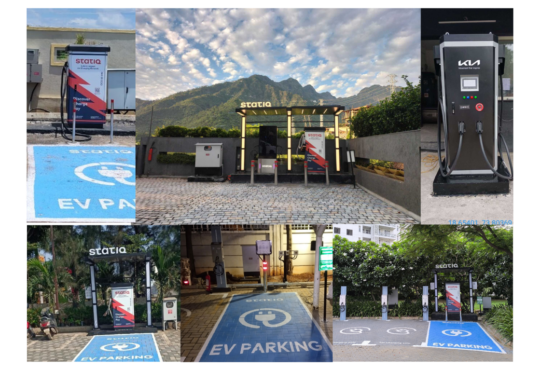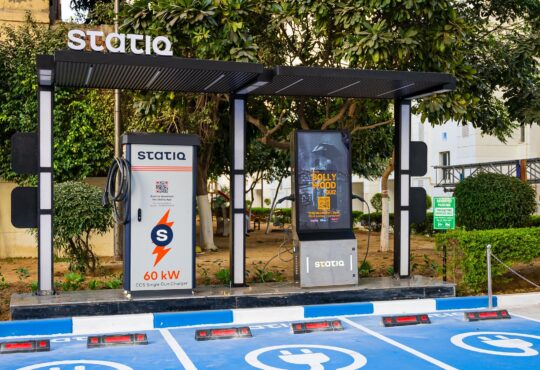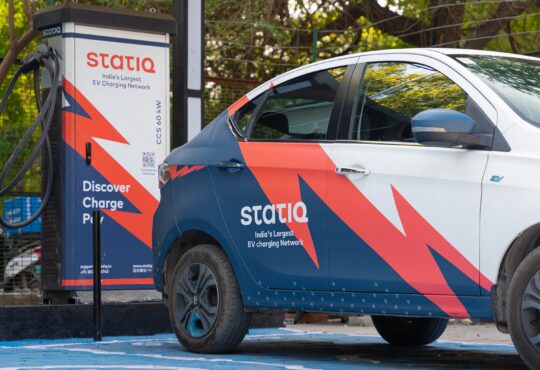
Electric Car vs. Gasoline Car: What’s the Right Choice for You?
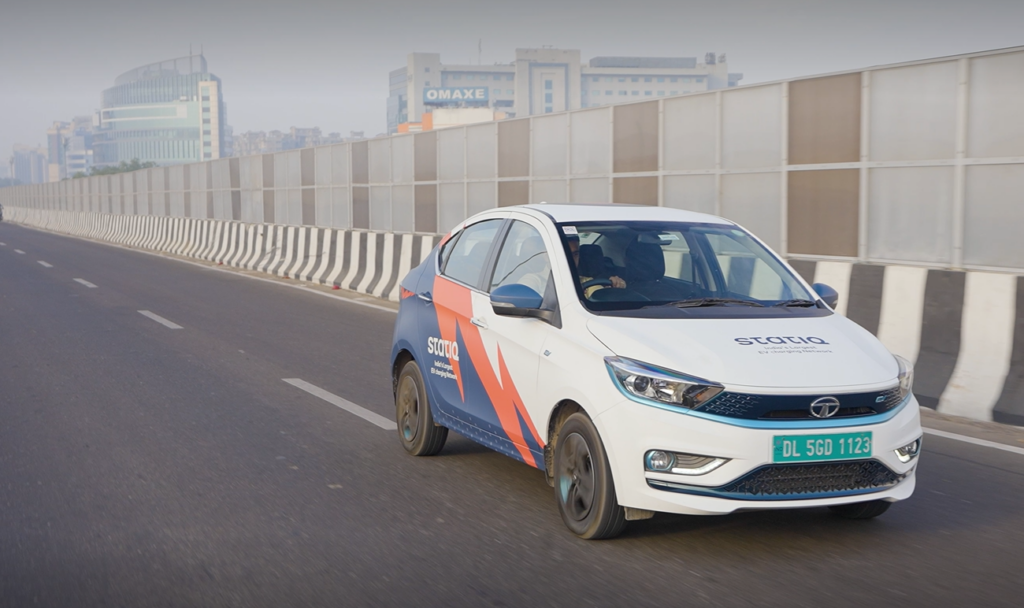
In recent years, the automotive industry has seen a significant shift towards electric vehicles (EVs) as an alternative to gasoline cars. With concerns over environmental impact and fluctuating fuel prices, many consumers are weighing the options between electric and gasoline cars.
When purchasing a new car, buyers often explore multiple aspects before finalizing the car and model they want to buy. A buyer often gets confused between choosing an EV over a petrol vehicle due to subsidies, the benefits EV owners receive from the government, and higher taxes on petrol variants, especially when they have a budget for both EVs and gasoline vehicles.
In this blog, we will explore the various factors to consider when making this decision, including initial cost, maintenance, resale value, insurance, and subsidies. This will help you clear all your doubts and decide which vehicle to choose.
1. Initial Cost
Electric cars typically have a higher initial cost compared to gasoline cars. The price of EVs includes the cost of the battery and electric drivetrain technology, which can make them more expensive upfront. However, government incentives and subsidies are often available for purchasing electric vehicles, which can help offset the initial cost. Overall, the initial cost of an electric vehicle is higher than that of a gasoline vehicle. As technology advances and production scales up, the cost of electric vehicles is gradually decreasing, making them more competitive with gasoline cars in terms of upfront expenses.
2. Maintenance Cost

One of the key advantages of electric cars is their lower maintenance costs compared to petrol cars. Electric vehicles have fewer moving parts and do not require frequent oil changes, spark plug replacements, or emissions-related maintenance. This helps you save around ₹5,000 every six months in maintenance costs. This can result in significant savings over the lifetime of the vehicle. On the other hand, petrol cars require regular maintenance such as oil changes, filter replacements, and exhaust system repairs, which can add up over time.
3. Resale Value

Currently, gasoline variants have a higher resale value as compared to electric cars. However, as the demand for electric vehicles increases and technology improves, the resale value gap is narrowing. Factors such as battery degradation and evolving technology can influence the resale value of electric cars. Nonetheless, with the growing popularity of EVs and increasing consumer confidence in their reliability, resale values are expected to become more competitive with petrol cars in the future.
4. Tax Benefits

Currently, the government of India is offering tax benefits on the purchase of electric vehicles.
1. Tax Deduction Under Section 80EEB: Individuals purchasing electric vehicles can avail of a deduction of up to Rs. 1,50,000 on the interest paid on loans taken to buy EVs. This deduction falls under Section 80EEB of the Income Tax Act, providing financial relief to buyers.
2. Low GST Rate: The government has reduced the Goods and Services Tax (GST) rate on electric vehicles from 12% to 5%, making EVs more affordable for consumers. This reduction in GST contributes to lowering the purchase price of electric vehicles.
3. Exemption from Road Tax and Registration Costs: In certain states, like Delhi, Tamil Nadu, and others, electric vehicles are exempt from road tax and registration costs. This exemption further reduces the overall purchase price of EVs, making them more economically attractive to buyers.
4. Exemption from Green Tax: The government’s Green Tax policy aims to reduce pollution levels by imposing taxes on polluting vehicles. However, electric vehicles are entirely exempt from the Green Tax, providing an additional financial incentive for choosing EVs over conventional vehicles.
5. No Fuel, No Emissions, No Price Fluctuation

Fully electric vehicles do not require petrol or diesel, resulting in zero emissions during operation, and you don’t need to worry about crude oil price fluctuations. This not only reduces environmental pollution but also eliminates the need for purchasing and storing fossil fuels, contributing to cleaner air and sustainable transportation.
6. Insurance Cost
Insurance premiums for electric cars are often comparable to petrol cars. Factors such as the car’s value, repair costs, and driver demographics can influence insurance rates. However, some insurance companies offer discounts or incentives for electric car owners, as they are perceived to be safer and more environmentally friendly. Additionally, electric cars may qualify for lower insurance rates due to their advanced safety features and reduced risk of combustion-related accidents.
7. Subsidies
Many governments around the world offer subsidies and incentives to promote the adoption of electric vehicles. The Indian government is also offering subsidies and incentives under the FAME II scheme. State governments are also offering subsidies to EV owners in their regions. State government subsidies may vary from one state to another.
Subsidies on Electric Cars : State-wise data
| State | Subsidy (Per kWh) | Maximum subsidy | Discount on road tax |
| Maharashtra | Rs. 5,000 | Rs. 25,000 | 100% |
| Meghalaya | Rs. 10,000 | Rs. 20,000 | 100% |
| Gujarat | Rs. 10,000 | Rs. 20,000 | 50% |
| Assam | Rs. 10,000 | Rs. 20,000 | 100% |
| Bihar | Rs. 10,000 | Rs. 20,000 | 100% |
| West Bengal | Rs. 10,000 | Rs. 20,000 | 100% |
| Rajasthan | Rs. 2,500 | Rs. 10,000 | NA |
| Odisha | NA | Rs. 5,000 | 100% |
| Uttar Pradesh | Nil | Nil | 100% |
| Kerala | Nil | Nil | 50% |
| Karnataka | Nil | Nil | 100% |
| Tamil Nadu | Nil | Nil | 100% |
| Telangana | Nil | Nil | 100% |
| Madhya Pradesh | Nil | Nil | 99% |
| Andhra Pradesh | Nil | Nil | 100% |
| Punjab | Nil | Nil | 100% |
- Maharashtra: The maximum subsidy includes the early bird incentive.
- Bihar and Punjab: The policy is yet to be approved.
Subsidies on electric scooter and bikes: State-wise data
Electric two-wheelers are also eligible for state government-provided subsidies.
| State | Subsidy (Per kWh) | Maximum subsidy | Discount on road tax |
| Maharashtra | Rs. 5,000 | Rs. 25,000 | 100% |
| Meghalaya | Rs. 10,000 | Rs. 20,000 | 100% |
| Gujarat | Rs. 10,000 | Rs. 20,000 | 50% |
| Assam | Rs. 10,000 | Rs. 20,000 | 100% |
| Bihar | Rs. 10,000 | Rs. 20,000 | 100% |
| West Bengal | Rs. 10,000 | Rs. 20,000 | 100% |
| Rajasthan | Rs. 2,500 | Rs. 10,000 | NA |
| Odisha | NA | Rs. 5,000 | 100% |
| Uttar Pradesh | Nil | Nil | 100% |
| Kerala | Nil | Nil | 50% |
| Karnataka | Nil | Nil | 100% |
| Tamil Nadu | Nil | Nil | 100% |
| Telangana | Nil | Nil | 100% |
| Madhya Pradesh | Nil | Nil | 99% |
| Andhra Pradesh | Nil | Nil | 100% |
| Punjab | Nil | Nil | 100% |
- Maharashtra: The maximum subsidy includes the early bird incentive.
- Bihar and Punjab: The policy is yet to be approved. (Data Reference: Acko Drive)
Note: The subsidy figures for electric cars and two-wheelers are taken from each state government’s website.
8. Environmental Consequences
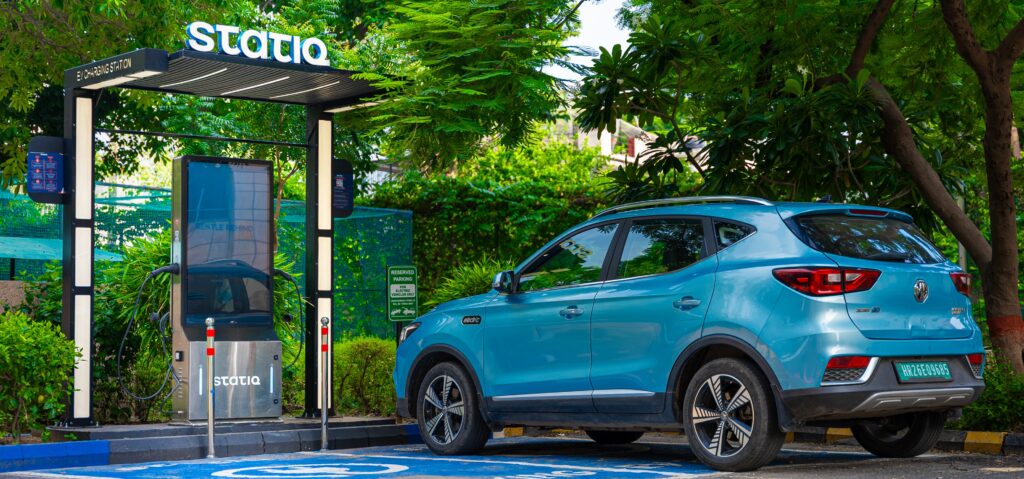
Gasoline vehicles play a substantial role in generating greenhouse gas emissions and air pollutants. This could result in the implementation of more stringent regulations and potential future financial burdens. Ethiopia became the first country to ban gasoline vehicle imports in the country. More countries are likely to implement such stringent regulations over time. On the contrary, electric vehicles do not have tailpipes; hence, they do not produce greenhouse gas emissions.
Conclusion
When deciding between an electric car and a petrol car, it’s essential to consider various factors, including initial cost, maintenance cost, resale value, insurance, and subsidies. While electric cars may have a higher upfront cost, they often offer lower maintenance expenses, competitive resale values, and potential savings on insurance and subsidies. Ultimately, the choice between electric and petrol cars depends on individual preferences, driving habits, and budget considerations. As technology continues to advance and infrastructure improves, electric vehicles are becoming an increasingly viable and sustainable option for environmentally conscious consumers.
Also Read, How Do Electric Cars Impact Air Quality?
